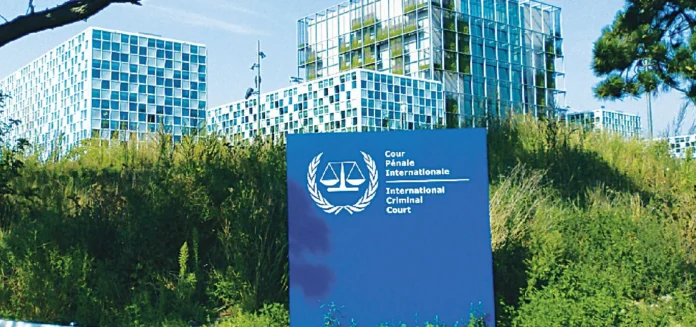By Pawan Kumar
When the International Criminal Court (ICC) came into force on July 1, 2002, it was hailed as a watershed moment in the history of global justice—a permanent tribunal empowered to try individuals, including heads of state, for the gravest crimes under international law: genocide, war crimes, crimes against humanity, and, since 2018, the crime of aggression.
Now, as the ICC approaches its 24th anniversary, its achievements and shortcomings invite fresh scrutiny. But what’s equally striking is the persistent absence of one of the world’s largest democracies—India—from its fold.
Despite helping shape the Rome Statute and participating robustly in the Court’s negotiations, India ultimately refused to sign the treaty, citing concerns about national sovereignty, exclusion of nuclear weapons and terrorism from the statute, and potential prosecutorial overreach. Yet, in doing so, India may have ceded the chance to shape the very institution it helped birth.
WHY THE ICC MATTERS MORE THAN EVER
The ICC stands today as the court of last resort, intervening only when national systems are unable or unwilling to prosecute egregious crimes. Its power is not in sweeping arrests, but in its symbolism: a global consensus that no individual—no matter how powerful—is above the law.
In an era where nationalism often trumps accountability, this principle is more vital than ever. The ICC’s insistence on no immunity for sitting heads of state or high-ranking officials reaffirms the global commitment to justice over political convenience.
India, with its rich legal heritage and functional democracy, should be a natural ally of this principle. Instead, its absence is increasingly jarring.
INDIA’S REASONS—AND THE REAL RISKS
India’s official reservations have remained consistent:
1. The Security Council’s unchecked power to refer cases to the ICC, giving disproportionate influence to the P5 nations.
2. Exclusion of terrorism and nuclear warfare from the Court’s jurisdiction—areas India considers critical to its security interests.
3. Fear of politically motivated prosecutions targeting Indian officials, particularly in conflict-ridden regions like Kashmir and the Northeast.
Yet these fears may be overstated, if not entirely unfounded. The Rome Statute’s principle of complementarity means the ICC only steps in if a state fails to prosecute. India’s robust judiciary and constitutional protections already provide substantial safeguards.
Moreover, claims of vulnerability—like Indian officials being arrested abroad on ICC warrants—are largely speculative, given the Court’s reliance on judicial panels and due process before any arrest or prosecution is authorized.
A MISSED OPPORTUNITY FOR LEADERSHIP
India’s absence from the ICC isn’t just a legal technicality—it’s a missed opportunity to lead. As a self-declared “Vishwa Guru”, India champions democratic values, the rule of law, and global peace. But by standing outside the ICC, it undermines that claim. The symbolism is stark: a country that helped free Bangladesh from genocide and tried a former prime minister for abuse of power now opts out of the global justice system.
Consider the Bashir case: when former Sudanese president Omar al-Bashir, under an ICC arrest warrant, attended the 2015 India-Africa Forum Summit in New Delhi, global calls to detain him went unanswered. India, not being a member, was not legally bound to comply. But morally and diplomatically, it exposed a contradiction between India’s democratic ideals and its strategic caution.
TIME TO JOIN, AND REFORM FROM WITHIN
India’s continued absence from the ICC sends a message—that justice is negotiable, that global accountability can be overridden by domestic political anxieties. But if India is to be taken seriously as a global power, it must rise above this strategic ambivalence.
Joining the ICC does not mean surrendering sovereignty. It means asserting leadership—helping depoliticize UN Security Council referrals, advocating for inclusion of terrorism and nuclear crimes, and reinforcing judicial independence through meaningful reform.
India has done this before. Its role in shaping post-colonial legal orders, its own constitutional commitments to equality and justice, and its tradition of judicial activism place it in a unique position to strengthen the ICC from within.
CONCLUSION: STANDING ALONE OR STANDING APART?
As global authoritarianism surges and multilateralism falters, India’s exclusion from the ICC is not just strategic—it is symbolic. It suggests retreat, not leadership. Hesitation, not vision.
To lead in international law, India must stand for it. The ICC may not be perfect, but by remaining outside, India limits its power to influence it, reform it, and reinforce the global norm that no one is above justice.
The world is watching. The question is not whether India needs the ICC.
The real question is: Can global justice be whole without India?
—The writer teaches at Amity Law School, Amity University, Noida


